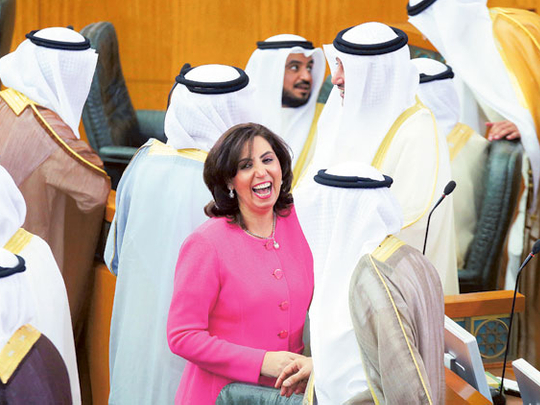
Kuwait City/ Manama: Kuwait’s Emir Shaikh Sabah Al Ahmad Al Sabah called on Tuesday for comprehensive reforms in the Gulf state, saying it was time to change old concepts.
“It is time to launch a new decisive phase and a major qualitative move aimed at achieving comprehensive reforms and complete development” programs, the ruler said at the opening of the parliament that was elected in July amid a bitter political crisis.
The emir’s announcement comes a day after the government said it planned to review subsidy policies and charges on public services and commodities.
“It has become necessary to rectify old concepts ... It’s time to adopt a new work methodology,” the 85-year-old ruler said.
The emir added however that the country’s public funds were sacred and that their sanctity must be respected and protected. Public funds are for all Kuwaiti citizens, he said.
“Genuine national development is not just high-rise buildings, in spite of their beauty, or luxury markets, despite their benefits or just roads, airports and facilities, despite their necessity. Genuine national development is human development. The development of a good citizen and of a positive person is the most important and significant investment. It is the most difficult to achieve result and the highest return,” Shaikh Sabah said.
Also speaking at the session, Prime Minister Shaikh Jaber Mubarak Al Sabah said “comprehensive reforms have become an urgent national necessity.”
The OPEC country generates around 94 per cent of its income from oil, most of which is spent on wages, subsidies, defence and security.
In a four-year program presented to parliament on Monday, the government warned that if no reforms are undertaken, the country will start posting real budget deficits in 2021 and this could accumulate to hit $1.46 trillion (Dh5.63 trillion) by 2035.
The government program argued there is an urgent need to reduce subsidies on fuel, electricity and water and raise charges on public services which are offered to citizens for free or at highly-subsidised rates.
Earlier this month, the International Monetary Fund urged Kuwait to contain public spending, which has trebled in seven years, to avoid risks from a drop in crude prices.
Kuwait has boasted a budget surplus in each of the past 13 fiscal years, accumulating around $300 billion, whereas the size of its sovereign wealth fund has increased to over $400 billion.
The emir also spoke about the rationalisation of political activities and democracy practice, the consolidation of a culture of dialogue and reconciliation, tolerance and compromise, the rejection of exclusion, the tolerance of differences and the respect of other opinions.
“However, we must realise that this cannot be achieved with the stroke of a pen or overnight,” he said. “This can happen through continuous practices and experiences that require honest determinations and sincere efforts and may take long years and generations. Everyone knows that the countries that have well-established democracy needed centuries to reach high levels of maturity in their experiences.”
The Kuwaiti parliament was elected in July in the second polls in under eight months after the constitutional court dissolved the previous house over procedural flaws.
It was the second legislature to be dissolved in a year in the same way and for the same reason.
The July 27 polls were boycotted by most of the Islamist, nationalist and liberal opposition groups for the second time in a row in protest over an amendment to the key electoral law.
It was also the sixth election in the past seven years due to continued political disputes between MPs and the ruling family-led government.
Kuwait, which says it sits on 10 per cent of global oil reserves, pumps around three million barrels of crude per day. It has a citizen population of 1.23 million and 2.67 million expatriate residents.
The Emir warned there would be “challenges and obstacles on the way forward.”
“We will stop, retreat or despair. This is a natural development in life and throughout the ages, every successful progress had to confront difficulties, challenges and constraints,” he said.
— with inputs from Habib Toumi, Bahrain bureau chief










